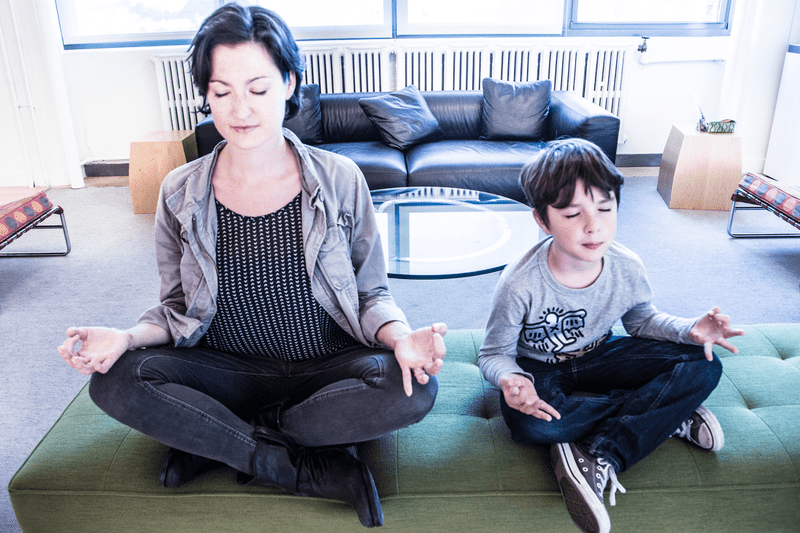KEN FEINBERG: The way I’ve learned how to listen is through practical experience. I’ve learned the hard way that if you open your mouth and words come out where you’re trying to be empathetic — be careful.
MARY HARRIS: This is Only Human from WNYC. I’m Mary Harris. And we have arrived at Day 3 of our listening week — the week when our show helps you become a better listener. So far we’ve worked on putting down our phones, talking face-to-face and learning to read body language. And today’s challenge is about listening with empathy..
That warning you heard at the top comes from Kenneth Feinberg. He’s the lawyer and mediator who oversaw the September 11th Victim Compensation Fund. He had a similar role after the massacre at Virginia Tech, and after the Sandy Hook shootings and the Boston Marathon bombing. Again and again, he’s arrived on the scene of a tragedy and taken on the job of assigning dollar amounts to each terrible loss.
He’s spent a lot of time listening to people who have experienced the worst things we can imagine. So if there’s anyone who understands the importance of empathetic listening, it’s him. But the first story Ken Feinberg told me was about a time when he messed up.
KF: After 9/11, I met an 84 year old man at the Pentagon who had lost a son. And he asked to see me. And I met him. And he said, “Mr. Feinberg, uh…it is a terrible, a tragedy, what happened. I lost my son. He worked at the Pentagon. When the plane hit, he escaped! From the Pentagon. Safe! He thought his sister, my daughter — he thought his sister, who also worked there, was trapped. So he went back into the burning building to look for her. She had escaped through a side door. He died looking for her.”
MH: The man was clearly distraught.
KF: Without thinking really I said to this man, “Mr. Jones, This is just terrible. Just terrible. I know how you feel.” He looked at me, tears coming down his cheeks. He said, “Mr. Feinberg, you have a tough job. But I have some friendly advice. Don’t tell anybody like me that you know how I feel. Mr. Feinberg, you have no idea how I feel.” Well I felt like two cents. I will never do that again.”
MH: Feinberg learned that often the best way to listen well is to say as little as possible. People want to be heard.
KF: People wanna vent. They want somebody to listen to how they’ve been thrown a curveball, and they’ll never be the same. Or people come to validate the memory of a lost loved one. “Mr. Feinberg, you’ve invited me here today for a private hearing. I was married to my wife for 25 years. She died in the World Trade Center. I’d like to start this hearing by showing you a video of our wedding 25 years ago.”
MH: Oh my gosh, that happened?
KF: Happened! Happens all the time. I want to show you a diploma, I want to show you a medal. I want to show you a certificate of good conduct. I want to show you how she came in first place. I want to show you, I want to show you. And when you tell them, well, you know, Mr. Jones, showing that video of your wedding — that will not have any bearing on compensation — so are you sure you’re ...“You’re gonna watch, Mr. Feinberg! You’re gonna watch! I want you to see what those murderers did to my angel.” Play the video.
MH: You’re describing really hard conversations.
KF: Terrible.
MH: How do you stay open to them?
KF: Well, you, I mean it’s very debilitating. As I say you don’t really, uh... You can’t cure this depression that you get, listening. I had 950 different claims in 9/11 that I listened to people. And you think you’ve heard everything, and then there’s another story, and you never heard that one before, and it is just stunning. And, um, you get through it.
MH: I feel like so many of us go into conversations where we should be listening, but we really just want to be heard.
KF: That’s right. It’s part ego. It’s part, I think, the human condition. We’re born with the ability to voice opinions. And I think, from a very early age, people wanna be heard. At a very, very young infant age, of course, you want to be heard through screaming and crying and pouting. And I just think it’s a natural human instinct.
MH: How do we not do that?
KF: You have to discipline yourself, and it’s not easy.
MH: Of course, the conversations Ken Feinberg has with victims are really different from everyday interactions with family, or friends, or coworkers. But Feinberg says what he’s learned through his work affects those interactions, too.
MH: What does it mean that you’ve become a better listener?
KF: I’m much better at hearing the other person’s point of view. I’m much more interested now in sopping up what people have to tell me and say. I’m less prone to interrupt and shoot off some response, some quick quip. I’m much more, uh, I think a much more studied respondent to what people are telling me.
MH: Feinberg advises making more time for silence as we talk to each other.
KF: I think listening is a goal and a good in and of itself. Solitude, I think, is a good goal in and of itself. I don’t think there’s enough emphasis placed on the value of solitude, especially in American life today. And I think being alone … contemplation and silence while you sort out life’s dilemmas, I think is a positive. It certainly is for me.
MH: With that in mind, this is our challenge: three minutes of silence. Sometime today, before an important conversation, or before you head home after a long day at work — take three minutes. Find a place where you won’t be interrupted. It can be a quiet room, or a front stoop. And for three minutes, stop thinking about to-do lists. Don’t focus on frustrations. Instead, think about who you’re about to spend time with, and think about allowing time in the conversation to really hear them.
And if three minutes seem hard to find — let me help you. You’re already listening to this podcast… so let’s practice here together. Right now. I’ll be back on the other side. But three minutes of silence are coming up. Ready? Let’s start in 3, 2, 1…
--
MH: That’s my phone alarm going off. I tried this exercise a few days ago. My three minutes weren’t very silent, because the only place I could think of to take them was in a little park on my way home. I sat there as trucks roared by. I kind of liked it.
But now I was in a rush to get home before my one-year-old daughter, Stella, went to bed.
MH: Ok… Here we go…
MH: Later that night, I told my husband, Mark, about my three minutes.
MH: The funny thing was watching the walk signal cycle on and off. Like, being there for a few cycles of the walk, don’t walk, because usually I’m just running to get to the walk…
MH: Mark listened patiently, and started to smile.
ML: You know what stinks about that? Is that Stella pooped literally about three minutes before you got home. And I was so hoping… I was like, “Oh, Mary’s almost home.” And I was like, “Why is it taking Mary so long to get home?” And now I know that you owe me one diaper change. And I’m not making that up.
MH: Am I a better listener tonight because I had three minutes of silence?
ML: No. Sorry, should I have paused and thought about that for a second?
MH: To me, this whole conversation is proof that those three minutes - they did work. I came home to a chaos of dishes piled up, and a husband who’d obviously wanted me home a little earlier to help him out. And instead of feeling stressed and annoyed, I channelled Ken Feinberg. I didn’t react. I listened. And, laughed.
I want to hear how this works for you. Where do you find your three minutes, and where does your mind go during that time? And what do you think about Ken Feinberg’s advice, that we should all find more solitude and silence?
You can call us at (803) 820-WNYC or send a voice message to only human at WNYC dot org. And tomorrow we’ll be back with Day 4 of our listening project … when we’ll work on your memory.
I’m Mary Harris. And this is Only Human.


